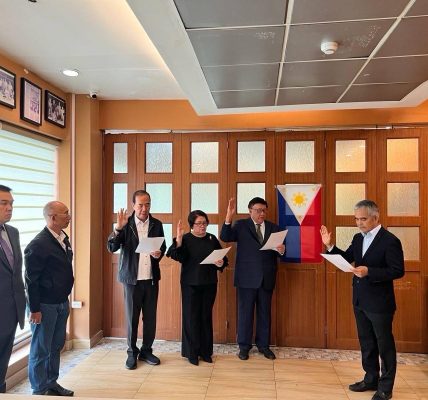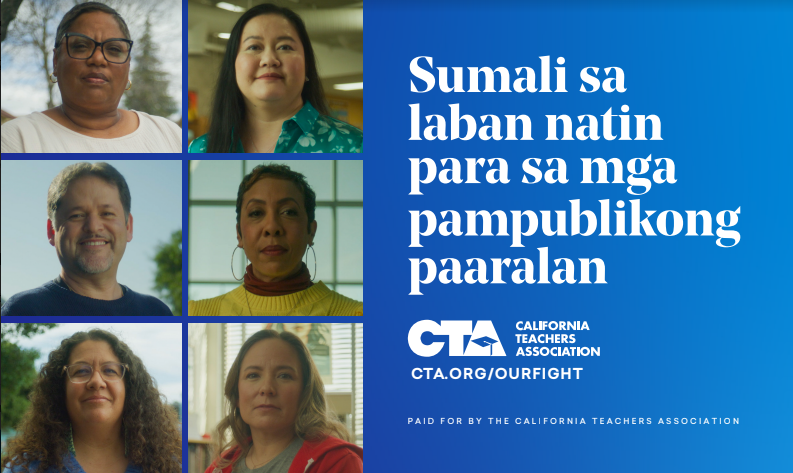By Cesar Antonio Nucum Jr
SAN FRANCISCO – Filipino American immigration lawyers have spoken and reacted to the advice of Philippine Ambassador to the United States Jose Manuel Romualdez to Filipinos who “are still here but cannot get any kind of status.
“My advice is for them not to wait to be deported, because I can see that the administration of President Trump is really going to be very strict with the immigration policy that he intends to put in place,” Romualdez said.
The FilAm lawyers have mostly advised to the contrary as they wanted Filipinos that are out of status to be educated, know their rights, and consult an immigration lawyer to be helped on these.New York-based Loida Nicolas Lewis led her colleagues in saying that “regardless of the election of Donald Trump, America remains a country that follows the rule of the basic law of the land – The U.S. Constitution.”
“Undocumented Filipinos should rely on that tradition: they are entitled to due process of having their right to stay in the USA decided by an Immigration Judge. Until that time comes, they should remain in this land, founded by immigrants seeking the four freedoms articulated by Franklyn Delano Roosevelt. Freedom of Speech. Freedom of Religion. Freedom from Want. Freedom from Fear. This is America in spite of President-elect Donald Trump,” Nicolas Lewis stressed.
Another female FilAm lawyer based in San Francisco Bay Area recalled that “though Trump has pledged to initiate mass deportations on the first day of his term, the details of this policy remain unclear. At present, there are no explicit guidelines on how deportations might be implemented.”
“Based on campaign statements, the following actions are anticipated: use of emergency and executive authorities to bypass existing laws, reactivation of the 1798 Alien Enemies Act, which served as the legal basis for the detention of people of Japanese, German, and Italian descent during WWII, and enlisting local and state police, U.S. military, and the National Guard to enforce immigration laws,” lawyer Lourdes Tancinco added.
In her research, Tancinco stated that American Immigration Council estimated that deporting one million people per year could cost taxpayers an estimated $88 billion annually aside from the additional resources required to increase law enforcement staffing, expand detention facilities, and staff immigration courtrooms, along with the substantial costs of deporting noncitizens via commercial airlines and chartered flights.
Trump also in 2016 discussed mass deportation, yet no more than one million immigrants were deported and most of those removed were convicted felons or individuals with final orders of removal. “Choosing to leave the United States voluntarily before a potential mass deportation requires careful consideration of the consequences. The term “voluntary departure” can have different meanings for laypeople and within legal contexts,” she said.
In conclusion, voluntary departure has significant immigration consequences, and consulting a licensed legal professional before making such a major decision is essential, she said.
“The U.S. Constitution guarantees due process rights to all residents, meaning that noncitizens may have the opportunity to be heard by an immigration judge before deportation. If detained, unauthorized immigrants may be entitled to a hearing,” Tancinco said.
“With a backlog of over three million cases, these hearings may be delayed by months or even years. According to Pew Research, of the 11 million unauthorized immigrants in the U.S., the majority have no criminal record. However, collateral arrests may still occur for those without criminal convictions who are encountered during ICE raids,” she added.
Another prominent lawyer, Rodel Rodi.s strongly urged that the Philippine Embassy and the Consulates should instead work with the Filipino community to assist those who are to be subjected to deportation.
“My estimate based on reliable anecdotal basis there are at least 500,000 TNT (taqo nang tago) in the U.S. They will need assistance from the community, the embassy and the consulate. It does not help them if they have an Ambassador who tells them to just go home,” Rodis said.
“How can they be helped if their families in the Philippines depend on the incomes they send? Without that income, the families in the Philippines will suffer. The Philippine government does not have the resources to provide them jobs when they return back. They will not be able to sustain themselves and their families that rely on remittances they send.”
Rodis urged Filipinos to stay, consult an immigration lawyer and educate yourself on what your rights and options are.
“When you go home and even if your U.S. citizen child petitions you, you have to wait for ten years because you made a mistake of going home. If you consult a lawyer, your child can petition you without you leaving the country,” Rodis said.
He disclosed that in one of the workshops during the August National Federation of Filipino American Associations (NaFFAA) conventions was on what NaFFAA can do to Filipinos who may face deportation because of a crackdown of the U.S. government. Foremost of these is to povide people with information about that options there are under U.S. laws how can they legalize their status, what rights do they have.
Another lawyer, Johnson Lazaro, tried to assuaged fears of Filipinos in saying “this isn’t the end of the road—far from it.”
“First and foremost, we still have the judicial system, and it’s very much intact. For the one million immigrants at risk of deportation under the new administration, there’s hope; they’re still entitled to their day in court. Despite the election results, we remain a functioning democracy, where even undocumented individuals have rights protected by laws that can, in many cases, prevent deportation,” Lazaro assured.
“Even if Republicans gain control of Congress, overhauling the entire immigration system will be no easy task. Changing the law is a complex, uphill battle. So, the end of the road is distant, and there’s no need for panic or packing bags. Instead, stay informed, speak with a qualified attorney, and keep a close watch on legal developments. This journey is far from over,” Lazaro added.



















